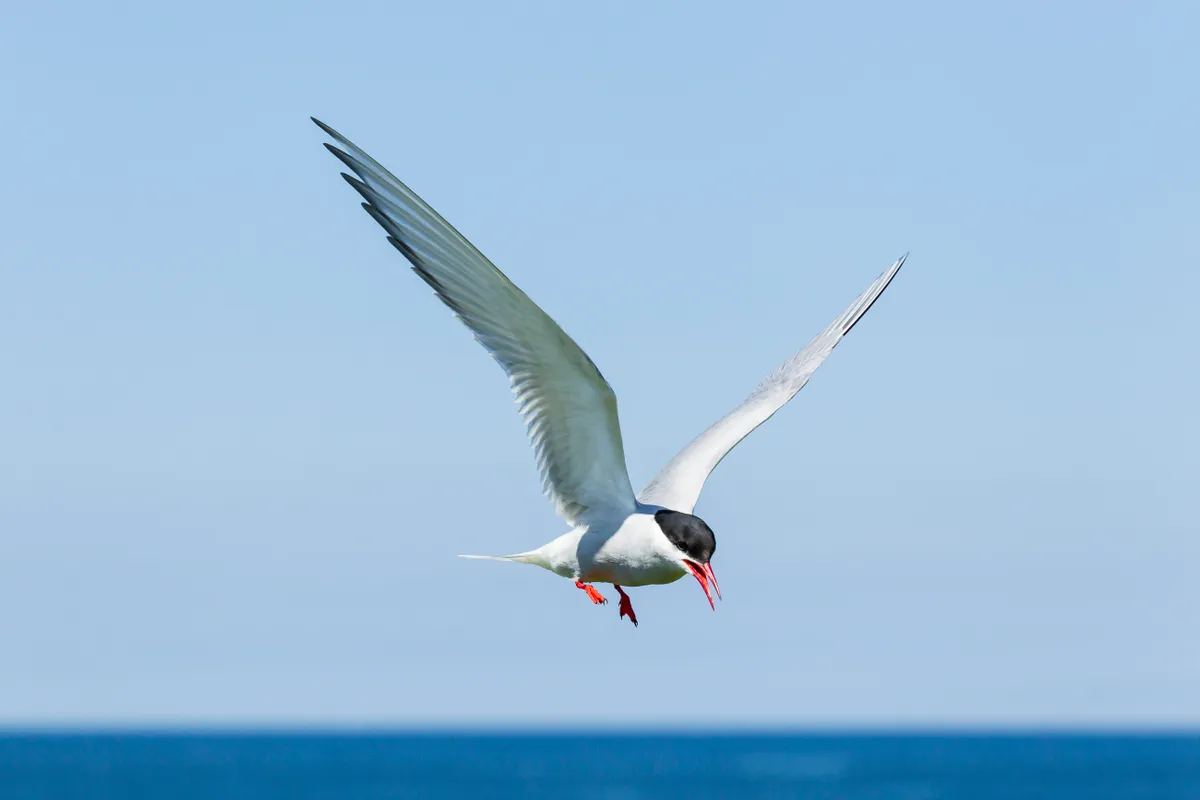The common tern (Sterna hirundo) isn’t quite our most numerous tern – birds don’t have logical names – but it is, perhaps, the most adaptable.
You are as likely to see it on a lake far inland as you are on the coast – it often breeds on “tern rafts” provided on reservoirs, for example – and it also has a broader diet that can include insects as well as fish.
This is a common seabird, with 11,000 breeding pairs, and can be seen from April to October.
In this guide we take a closer look at the common tern, including what they look like, courtship and migration patterns.

- Interested in learning more about Britain's birds? Check out our guides to puffins, gannets and auks.
Terns of Britain
Arctic terns, common terns and little terns grace Britain’s shores in the summers months. Learn how to identify them – and other tern species – with BBC Countryfile Magazine’s guide to terns.

Common tern identification
To identify terns, you need to look at bill colour, as well as tail length and underwing pattern. It’s really difficult. The common tern has a long red bill with a black tip, and a rather flat crown; when it is standing the tail streamers stick out as far as the wing tips. Meanwhile, the Arctic tern has a shorter, more blood-red bill without a black tip, a rounded crown and much longer tail-streamers, which extend well beyond the wing tips. It also has shorter legs.
Common tern breeding and habitat
In the early part of the season, when terns are pairing up, they have a delightful display in which a male presents to the female an offering of a fish it has just caught. The male offers it, held crosswise in the bill, and the female takes it, with much noisy calling from both parties. It looks beguiling, but unbeknownst to the male, the female is carefully monitoring the number of offerings. If the male’s efforts fall short, the female may abandon him before nesting begins, reckoning that if he cannot provide for her, he won’t do such a great job for the chicks.

Otherwise, the common tern does 'terny' things such as breeding in noisy colonies on beaches and islands, catching fish with a plunge-dive, and making life difficult for birdwatchers.

Seabirds of Britain
Discover some of the UK's most common types of seabird, where they live and the best places to see them with BBC Countryfile Magazine's guide to seabirds.

